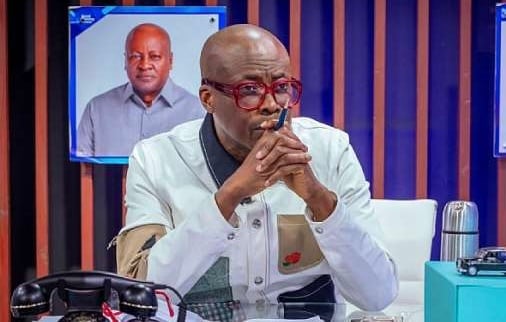The political landscape in Ghana is witnessing early stirrings of ambition within the ruling National Democratic Congress (NDC), sparking concerns about potential distractions from governance. Paul Adom-Otchere, host of Metro TV’s Good Evening Ghana and former Board Chair of the Ghana Airports Company Limited (GACL), has criticized what he perceives as premature jostling for the party’s 2028 presidential candidacy. This follows a recent post-election thank-you tour by NDC National Chairman Johnson Asiedu Nketiah, which has fueled speculation about his presidential aspirations. Independent polling firm Global InfoAnalytics has further contributed to this narrative by identifying Mr. Asiedu Nketiah, along with Education Minister Haruna Iddrisu, Chief of Staff Julius Debrah, and Finance Minister Dr. Cassiel Ato Forson, as potential successors to President John Dramani Mahama, whose second term concludes in 2029.
Adom-Otchere’s critique centers on the potential detriment to national development if key government figures prioritize personal political ambitions over their current responsibilities. He argues that this early maneuvering for the 2028 election could divert attention and resources away from pressing national issues. He cites the activities of Asiedu Nketiah, Debrah, and Forson as examples of this premature campaigning, raising concerns about the government’s ability to maintain focus on its agenda. He specifically highlights the involvement of the finance minister, Dr. Forson, as particularly concerning, given the crucial role of this position in managing the nation’s economy.
The potential consequences of this early politicking, according to Adom-Otchere, are significant. While he acknowledges that the NDC itself may not necessarily suffer electorally, he emphasizes the potential negative impact on Ghana as a whole. He questions whether the government will be able to effectively govern until the next election cycle if key figures are preoccupied with their own presidential ambitions. This early focus on the 2028 race, he suggests, could lead to a neglect of pressing national issues and hinder the government’s ability to deliver on its promises.
Despite his criticism of the early campaigning, Adom-Otchere expresses his support for Asiedu Nketiah’s potential bid for the NDC’s presidential nomination. He attributes this endorsement to Asiedu Nketiah’s significant contributions to the party’s victory in the 2024 general elections, particularly their success in securing a two-thirds majority in parliament. This endorsement highlights the complex and often contradictory dynamics within the political landscape, where concerns about premature campaigning can coexist with support for individual candidates.
The situation raises several crucial questions about the balance between personal ambition and national interest within the political sphere. Is it detrimental for individuals to begin positioning themselves for future elections so early in an electoral cycle? Does this early maneuvering necessarily detract from their ability to effectively perform their current duties? The debate highlights the tension between the individual aspirations of politicians and the broader needs of the country.
Further complicating the issue is the role of media and polling organizations in shaping public perception and potentially influencing the political process. The publication of polls identifying potential presidential candidates so far in advance of the election can contribute to the very dynamic that Adom-Otchere criticizes. By highlighting potential contenders, these polls can inadvertently encourage early campaigning and speculation, diverting attention from current governance. This raises questions about the responsibility of these organizations in managing the flow of political information and its potential impact on the political landscape.


